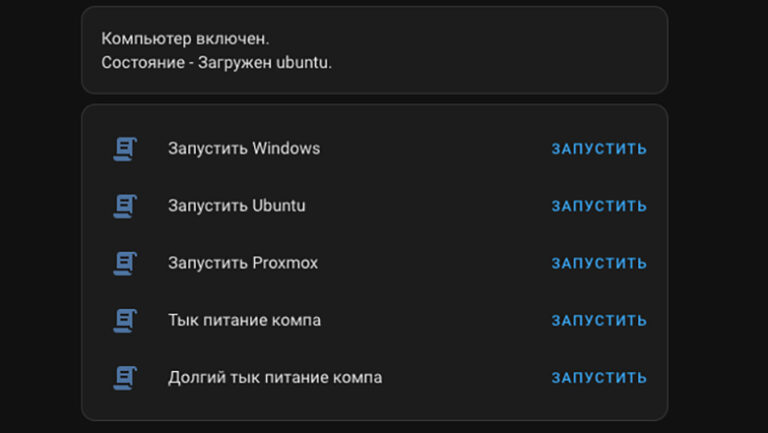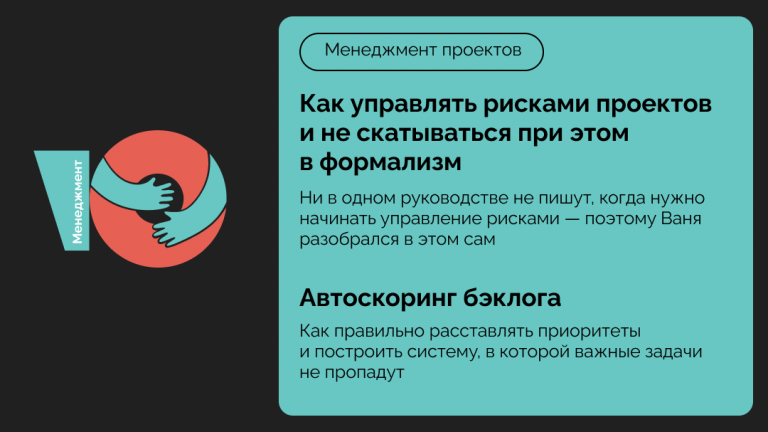distract everyone, break everything, don’t know something, fall into code review…}

“A bunch of leads and seniors have gathered around, and I’m pulling everyone.”
Alexandra Nikolskaya, Test Engineering Team Lead
— At the start of my career, I had an internal choice between analytics and testing. And I chose testing with one of the points that here I would probably have to communicate with people much less… Oooh, how wrong I was – it turned out that my work is connected with many colleagues with whom I will have to interact!
As a result, from the very beginning of the internship, a fear grew in me that, well, my tasks, they are probably so small and insignificant… And now I’ll go up to another person – and he can’t be more busy with his important tasks – and I will, that means , distract him.
Well, there was also shyness. It so happened that I was the only intern in a team in which there was no one lower than a senior. Well, that is, no juniors, no trainees, or even middles. You see, yes: a bunch of leads and seniors have gathered around me, and I walk around and distract everyone with my questions? Well, sort of… At the same time, the team treated me great, there was no negativity or ignorance on their part. It’s all precisely because I came after university, I don’t know anything in particular, and I feel like there are strict and important “seniors-tomatoes” sitting around…
To be honest, the fear completely went away only at the end of the internship, that is, after about a year. And it’s not even that I finally realized how important my tasks really are (and they really were important, from the very beginning). I just realized that in order to complete my tasks I need a person to answer me. I need to do this and that. That is, part of my task is to deal with this fear of mine and do what is required of me. And through this, the feeling went away that when you interact with a person, it’s me who is imposing.
Well, in addition, I realized that if a person is really too busy, he simply will not answer you. Well, it’s okay – someone else will answer. In the end, we all sort out our own priorities: who to respond to, how long to respond…
In general, all these phobias with imposition are, of course, a lot of subtleties in terms of interaction with people: how to get answers to your questions without starting to piss off the team or make them ignore you. When I was an intern, I could not always clearly monitor this and manage my energy. But with experience, my approach became more conscious, controlled and balanced. And now I myself help my interns with this balance.

“I break something and I don’t even know how to fix it.”
Denis Marutko, Senior DevOps Engineer
— My main fear was not understanding which service would forgive my mistake and which would be sad. And as a result – the fear of accidentally breaking something.
The department I came to (and where I continue to work) is responsible for checking and releasing anti-virus databases. This is, firstly, a huge, and secondly, critical system. And when at first some kind of task came to me – to fix something somewhere, to fix something somewhere – I still didn’t fully understand what could be touched. Let's say which server can be rebooted and which cannot.
And this misunderstanding resulted in fear. What if you make changes and something goes wrong or even breaks down?! And worse than that, you don’t even know how to fix it later, because you’re just starting to figure it out.
And then – more: the deeper you go, the more questions arise. You have entered into one thing, and there is still a whole mountain of information on top of which you again understand nothing.
Of course, my colleagues helped me a lot in this regard – they told me everything, showed me everything, and never left me alone with the problem. But it took a lot of time to understand all the nuances of the system.
But that’s not all: when I moved to a full-time position, I had duties. What does this mean? That they can call or text you at any time on duty. And this happens at night, during the day, on weekends… And if there is any problem, naturally, you have to solve it. And your colleagues are no longer around, and you need to figure it out on your own, understand what’s wrong, and fix it quickly enough, because the people on duty have certain SLAs for the reaction time, the time it takes to solve the problem, and so on. Naturally, if the situation is urgent, then you can call or write to the team and involve your colleagues in the work. But not all the time?! What kind of specialist are you then if you can’t prioritize and run for help with every first task?!
But, of course, the longer you work, the more experience and expertise you gain. Soon I almost thoroughly knew all the systems and processes and understood in what situation what needed to be done. And even if something unknown happened, it no longer seemed frightening: “Well, yes, it’s unclear, but now we’ll figure it out.”

“The fear of code reviews arose after the first review.”
Victor Novikov, Software Development Group Manager
— I was afraid of code reviews. More precisely, before the internship I did not even know about such a practice, and at first I was afraid of my lack of experience and knowledge. And the fear about the review itself arose after the first review =)
Of course, at first I received a huge number of comments, starting with CodeStyle and ending with the invention of bicycles of varying complexity. But show me an intern with a month or two of experience who codes without a single blot…
Then everything depends on two factors. The first is how you yourself feel about the comments. With this, as you understand, I had problems. Someone who has a high level of self-confidence in life is not as susceptible to this fear. But such people, in my experience, are quite few. What can we say about an intern who gets his first job in his life… There is generally a whole scope for phobias.
And the second factor is your mentor and how he conveys these comments to you. Personally, I was very lucky: I had great mentors throughout my internship at Kaspersky Lab. Moderately tough, but always fair, open to dialogue, ready to answer all my, as it seemed to me, stupid questions.
The fear of failing at a code review began to go away as I gained experience and confidence. And besides, there was a full understanding that the comments on the review are not aimed at somehow offending you and rubbing your nose in your “jamb”, but at ensuring that the overall quality of the code (and at the same time the products and work of the entire company in general) was maintained at a high level. Well, in general, it would be ideal if during the discussion at the review we manage to find a more beautiful and optimal solution to the problem.
Now I am very calm when people write comments on my code (although, of course, I have to write much less code than before). Well, it’s a special joy for me as a manager when my former interns find some “jambs” in my code =)

“I try not to forget that the fear of being rejected is inherent in evolution.”
Sasha Shindin, Senior Project Manager
— My main fear was the fear that something would not work out. And to be even more precise, a dissonance consisting of three components: “I don’t know much,” “I want to prove myself,” and “I’m afraid to make a mistake.”
When you arrive at a new place, in a large company, you hardly realize what awaits you. A huge number of strangers nearby. There are a lot of terms and questions that you don’t really understand, which are heatedly discussed by your teammates. A mentor to whom you feel embarrassed to dump the bunch of questions you have. And I want to prove myself to the maximum, I want to be as useful as possible! So I fell into the trap of fear that there was a risk of being “not young”…
And here it comes down to onboarding; how the team and especially the mentor will accept you. I had a mentor who was super patient – I bombarded him with questions every now and then, and he (Pasha, hello, if you’re reading – and thank you again HUGE!) answered them very humbly. Looking ahead, after a while I myself became a mentor and since then I have tried to treat my younger colleagues with the same care. Because I experienced firsthand how important it can be.
After a month or two of work, when I began to fix the first bugs, when lines of my code began to go into production – in general, I began to understand that I was providing some tangible benefit and that I was generally coping, it became much, much easier.
Then, when the fear that something won’t work out disappears, the head begins to work in a completely different way. You suddenly realize that there are the same people around you who are also making mistakes, and in general, that making mistakes is normal. And even more so, an internship is generally about making mistakes. It’s alarming, of course, when you first realize that you’ve “messed up.” But when you mess up and see that this is not a death sentence and that everything can be corrected, then this is a great lesson: “Wow, it turns out that it’s possible.” Moreover, your colleagues do not bully you, but support you.
And a little more about the mix of “I want to prove myself” and “I’m afraid to make a mistake.” Sometimes there is a fear that you have noticed something, and this… In general, you are afraid that your super idea is complete nonsense and nonsense. I think that this is relevant for any person in any position – specialist, manager, top manager. The only thing that changes is the audience you tell it to. Well, there’s probably nothing that can be done: the fear of being rejected is inherent in evolution, I just try not to forget about it.

“Not fear, but an incentive for productive activity.”
Vladislav Tushkanov, head of the research and development group for machine learning technologies
— For me, work is an opportunity to do important and interesting things that attract me in everyday life. But to do this, firstly, on the scale of an entire company, and secondly, shoulder to shoulder with professionals from whom you can learn a lot (and, of course, get paid for it). So it’s strange to be afraid of your own hobbies 🙂
On the other hand, I am a responsible person and I really don’t like letting my colleagues down. Can we call this fear? Well, maybe to some extent. And this is a completely normal emotion. It is important to convert it into an incentive for productive activity. For example, in creating mechanisms that will limit your ability to make a mistake (the same unit tests) and at the same time will not prevent you from trying something new. And so that, based on the results of the error analysis, everything is done to minimize the likelihood of the same situation repeating (after all, anyone can make a mistake).
In a word, if you have fear that is adequate to the situation and on the basis of which any productive measures are taken, don’t be afraid 🙂 In fact, everything is fine with you!

“You can’t be afraid, fear will enslave you.”
Dmitry Galov, Head of Global Research & Analysis Team (GReAT) Russia
— There is a phrase that I myself love very much and tell my team all the time. The phrase goes like this: “You can’t be afraid, fear will enslave you.” And this works very often and very well.
Fear is a showstopper. It always slows you down, because of it you don’t dare to take risks and, even if something doesn’t work out, through this risk create something breakthrough. There is nothing wrong with accidentally dropping your database once, understand why it happened, and draw conclusions. This is better than never doing anything like this in your life. It’s better to fix something later, but have the opportunity to experiment with something and learn something, than to play it safe and be afraid.
Everyone can have problems. Everyone makes mistakes. I make mistakes too. But I’m not afraid of this, but rather analyze the reason for the failure. So if you go ahead, are not afraid of anything and are responsible to yourself – in my opinion, you are on the right path!
This also means that the sooner you start interning, going somewhere, doing something, the better. Moreover, now the IT industry is much more adapted and loyal to interns than when I was an intern.
You come, they teach you, they mentor you, everyone tries to help you – the process is quite well structured and combines quite well with future work. No one wants to drink all the juice out of you and then fire you right away – it’s much more rational for the company to spend time teaching you something and growing you.
As a result, by the time you graduate from university, you are already a full-fledged specialist. And if you come only to complete your studies, then it is much more difficult for you to adapt. And then fears may appear that “I’m so educated, but I don’t know anything in a practical sense.” But when you come for an internship in your first year, the situation is exactly the same. It definitely won’t be any harder than it was then. But there will be an additional 4–5 years of opportunities and more powerful prospects!
From April 3 to April 25, Kaspersky Lab opened a new enrollment for the Kaspersky Safeboard internship. Respond linkto gain not only valuable knowledge and experience working with real cases (we talked about this in more detail Here), but also mentors who perfectly understand your fears and will help you cope with them. The internship is paid, and at the same time the intern receives compensation for meals, a free gym and a lot of other benefits.





